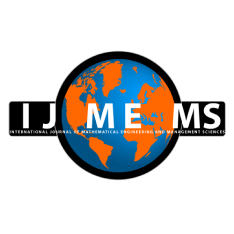Alexander Bochkov
Department of Analysis and Ranking of Monitored Facilities, LLC Gazprom gaznadzor, Novocheremushkinskaya Street, 65, Moscow, 117418, Russia.
Valeriy Lesnykh
Safety and Security Adviser, Administration, LLC Gazprom gaznadzor, Novocheremushkinskaya Street, 65, Moscow, 117418, Russia; RUDN University, Miklukho-Maklay Street, 6, Moscow, 117198, Russia.
DOI https://doi.org/10.33889/IJMEMS.2020.5.6.100
Abstract
Existing approaches to formation of quantitative indicator of resilience of objects of different complexity operating under conditions of external impacts are discussed. Advantages and disadvantages of approaches under discussion are specified. As general basis for application of resilience concept, the class of so-called target-driven systems oriented to achieving some preset target in a certain period is marked out. It is proposed to use the value of the indicator constructed using methodical apparatus "difficulties of achieving target" of I. B. Russman for quantitative assessment of resilience of similar systems. Methods of calculation and results of model assessments of resilience using this approach are presented. Directions of Russman’s approach development are proposed based on application of so-called method of trajectory analysis of behavior of target-driven systems, described by dynamics of integral indicator characterizing object of study in coordinates of rate and acceleration of its changes.
Keywords- Critical infrastructure, Dynamic corridor, Difficulty of achieving target, Resilience criterion, Risk, Reference vectors.
Citation
Bochkov, A., & Lesnykh, V. (2020). Development of Assessment Methods of Target-Driven Systems Resilience. International Journal of Mathematical, Engineering and Management Sciences, 5(6), 1345-1362. https://doi.org/10.33889/IJMEMS.2020.5.6.100.



